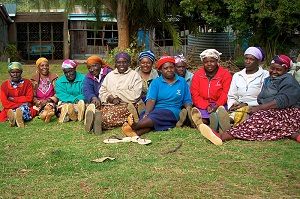
When the question is about the missionary on the dark continent, the very first thing you imagine are brave explorers carrying the Holy Bible and telling the tribesmen about Jesus. Not a bad option at all, but Robert Guest has something else to tell. With good old Economist, he’s ready to tell that every member of the benighted tribe community can be saved simply through entering the area of the free-market global capitalism. The latter is described by Guest as the tool that will bring the prosperity era to the continent and help to everyone to get rid of any local superstition.
It is necessary to point out that Guest appears to be excellently equipped for his mission. His breezy and plain style enables him to describe all the miseries and dreadful facts about Africans such as bitter massacres, poverty and even brigands at the local road-blocks. Besides, he’s known as the Economist’s African correspondent and editor, who truly believes the hard times that the continent is getting through are caused by the failure to build capitalism.
When staying on a small farm in Malawi, where Mr. Zimba had managed to build a small mud snack using a range of plastic bags as window frames, the author of the book came to a certain conclusion – there is no better and solid proof that the world’s poor are in need of what is called capitalism!
Using some good humor and compassion, Guest shows that nothing really works in the majority of the regions all over the dark continent: if the readers do not get the message, the author emphasizes it with lopsided letters in the headlines and the title. He portrays the people in Africa shackled by cruel governments, authority officials and rulers, who press so hard to destroy individual enterprise.
Despite all hope seems to be gone, Robert Guest remains positive. In the long run, the man is sure the country will eventually prosper. Every country can switch from being poor to wealth and comfort. And the best examples of such a transition can be seen in Japan and Italy.
In his book, Guest never views capitalism as something that only huge corporations are involved in. Instead, he insists that informal economy in Africa is crucial and supports the theories provided by Hernando de Soto. A famous economist from Peru say the dwellers in small and forgotten-by-God towns need to acquire property rights in order to get into the swing of things in the capitalistic world.
In the majority of dark continent countries, where greedy authorities enforce state controls, the importance of an individual free enterprise seems to be obvious, while the arguments of the author are pretty persuasive. However, when talking about the South Africa, Robert Guest doesn’t seem to be that convincing. Moreover, he doesn’t consider the past record of the Economist’s “cold-blooded world capitalism”, as well as anti-communist movement that led the team of the magazine to do battle with the sanctions and defend apartheid governments – that proved the key tool of the so-called peaceful revolution.
Instead, the author crudely explains the details of the transition: the USSR collapse encouraged the ANC (known nowadays as the most grandiose black liberation movement) to renounce the era of Marxism. That is why white citizens in the South African came to understanding that black rule did not include confiscation of their houses and other property. For that reason, they provided blacks with the right to vote via referendum.
Exactly that interpretation made capitalism unnecessarily cold-blooded for the globe. For it was the range of the USA banks, and all the sanctions imposed by the representatives of the Congress that started undermining apartheid long before the USSR fall. And exactly because of the western media support provided for the ANC they got persuaded they had more supporters in the west rather than in the east, and that it was a good idea to reconcile with the world capitalists.
Guest tells it’s important to apply the same explanations to the South Africa even today. The government’s efforts to protect and support workers have already led to the joblessness rise, Guest says. According to his words, corrective discrimination will never improve the life of human beings. How about the Afrikaner governments in the region that required English-speaking companies and banks to discriminate in their favor in order to let the middle class prosper?
It’s more than silly to believe the region can be saved through the application of a range of cruel free-market policies without taking into account the actual political costs. This can only stimulate new anti-capitalism movement. You, as a reader, have an opportunity to learn a lot from these pages; however, make sure to keep the political analysis in mind as well!
References:
- Mundell, “The Theory of Optimum Currency Areas,” American Economic Review, September 1961, pp. 657–65, and R. McKinnon, “Optimum Currency Areas,” American Economic Review, September 1993, pp. 717–25.
- Draper G Writing book reviews. Online article. Accessed from http://library.uwaterloo.ca/libguides/1-12.html, 2007-12-08.
- Stilwell F, 2010, ‘Environmental Policy: Beyond the Market’, Contesting Markets symposium, The University of Sydney, Sydney, September 30 – October 1.
- Book review of: Economics as Religion From Samuelson to Chicago and Beyond By Robert H. Nelson Penn State Univ. 378p.
- Brown, Ellen. “Time for a New Theory of Money.” org, October 29, 2010.
- Lee, C.J., Hsien-chan Ho, Shing-Mei Chen, Ya-huei Yang, Soon-joy Chang, and
- Hui-lin Wu. The Development of Small and Medium-Sized Enterprises in the Republic of China. Ta i p e i , Ta i w a n : Chung-Hua Institute of Economic Research, 1995.
- Colander, David. 2005. From muddling through to the economics of control: view of applied policy from J. N. Keynes to Abba Lerner. History of Political Economy, 37 (Supplement 1): 277-291.